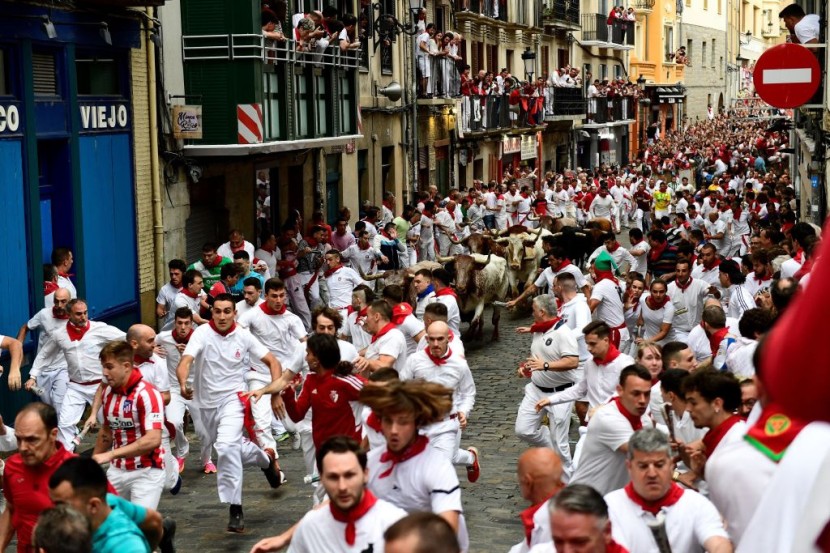
Thousands of thrill seekers participated in the first running of the bulls at the San Fermin Festival in the Spanish city of Pamplona Friday (July 7).
The event was the first time the traditional run was held after the constraints of COVID-19 ended in the country, as well as the commemoration of the centenary of Ernest Hemingway's first visit to the festival, which he wrote in his 1926 novel "The Sun Also Rises."
Several runners took knocks and hard falls in the morning event, the Associated Press reported, but no one was got killed, a feature of the spectacle.
In the run, a total of twelve oxen (six bulls and six tame) charged along the route for around two and a half minutes before reaching the bull ring in the city's center.
Read Also: Spanish Catholic Bishops Report 728 Cases, 927 Victims of Church-Related Sex Abuse Since 1945
First of Eight
Friday's run was the first of eight scheduled runs in honor of the city's patron, St. Fermin, a bishop who was born in Pamplona and martyred in Amiens, France, either during the Decian or the Diocletianic persecutions of the Roman Empire.
Expert bull runners, most of them locals, try to sprint at full speed in front of the bull horns before peeling off at the last second. Most of the inexperienced runners came from overseas and did well enough to scramble out of the way not to get gored.
After each day's runs, the remainder of the day would include massive sessions of drinking, eating, and attending cultural events.
Four runners were gored in the festival last year, and 16 were killed in the festival since 1910, the most recent of which was in 2009.
At least six were injured on the first day of this year's bull run.
Professional bullfighters kill the cattle that run each morning in the afternoon. Animal activists annually campaign against the festival, claiming it to be cruel to the animals.
Destino Navarra, an official tour guide group, said visitors from the United States and Canada represent 70% of its total bookings for this year's festival.
© 2026 HNGN, All rights reserved. Do not reproduce without permission.








